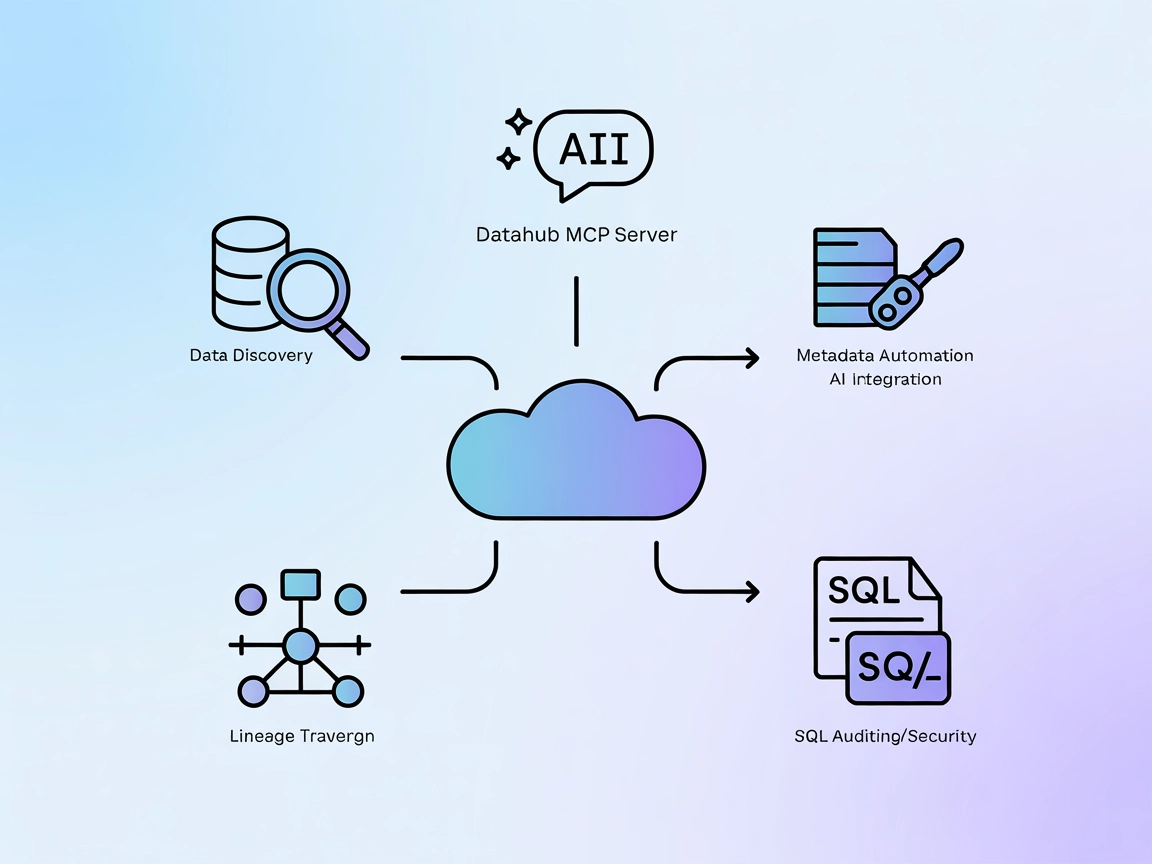
Model Context Protocol (MCP) Server
The Model Context Protocol (MCP) Server bridges AI assistants with external data sources, APIs, and services, enabling streamlined integration of complex workfl...

Integrate BambooHR with FlowHunt’s AI agents to automate HR workflows, including employee lookup, project management, and resource tracking, using a robust MCP server.
FlowHunt provides an additional security layer between your internal systems and AI tools, giving you granular control over which tools are accessible from your MCP servers. MCP servers hosted in our infrastructure can be seamlessly integrated with FlowHunt's chatbot as well as popular AI platforms like ChatGPT, Claude, and various AI editors.
The BambooHR MCP Server is a Model Context Protocol (MCP) library designed to facilitate seamless integration between AI assistants and the BambooHR API. Built using Node.js and TypeScript, it provides a clean, type-safe interface to access and interact with various BambooHR endpoints. By acting as a bridge between AI systems and HR data, the BambooHR MCP Server enables enhanced workflows for developers and organizations, such as querying employee directories, managing project assignments, submitting work hours, and retrieving information about team availability. This integration empowers AI assistants to automate HR-related tasks, streamline data retrieval, and support more effective human resources management within development environments.
No explicit prompt templates are mentioned or documented in the repository.
No explicit MCP resources are documented in the repository.
git clone https://github.com/encoreshao/bamboohr-mcp.git
cd bamboohr-mcp
npm install
{
"mcpServers": {
"bamboohr-mcp": {
"command": "npx",
"args": ["@bamboohr/mcp-server@latest"]
}
}
}
{
"mcpServers": {
"bamboohr-mcp": {
"command": "npx",
"args": ["@bamboohr/mcp-server@latest"]
}
}
}
bamboohr-mcp:git clone https://github.com/encoreshao/bamboohr-mcp.git
cd bamboohr-mcp
npm install
{
"mcpServers": {
"bamboohr-mcp": {
"command": "npx",
"args": ["@bamboohr/mcp-server@latest"]
}
}
}
{
"mcpServers": {
"bamboohr-mcp": {
"command": "npx",
"args": ["@bamboohr/mcp-server@latest"]
}
}
}
Securing API Keys using Environment Variables
Set the following in your environment or a .env file:
BAMBOOHR_TOKEN=your_api_token_here
BAMBOOHR_COMPANY_DOMAIN=yourcompany
BAMBOOHR_EMPLOYEE_ID=123
You can also specify environment variables within your JSON config:
{
"mcpServers": {
"bamboohr-mcp": {
"command": "npx",
"args": ["@bamboohr/mcp-server@latest"],
"env": {
"BAMBOOHR_TOKEN": "your_api_token_here",
"BAMBOOHR_COMPANY_DOMAIN": "yourcompany",
"BAMBOOHR_EMPLOYEE_ID": "123"
}
}
}
}
Using MCP in FlowHunt
To integrate MCP servers into your FlowHunt workflow, start by adding the MCP component to your flow and connecting it to your AI agent:

Click on the MCP component to open the configuration panel. In the system MCP configuration section, insert your MCP server details using this JSON format:
{
"bamboohr-mcp": {
"transport": "streamable_http",
"url": "https://yourmcpserver.example/pathtothemcp/url"
}
}
Once configured, the AI agent is now able to use this MCP as a tool with access to all its functions and capabilities. Remember to change “bamboohr-mcp” to whatever the actual name of your MCP server is and replace the URL with your own MCP server URL.
| Section | Availability | Details/Notes |
|---|---|---|
| Overview | ✅ | Provided in README |
| List of Prompts | ⛔ | No prompt templates defined |
| List of Resources | ⛔ | No explicit MCP resources listed |
| List of Tools | ✅ | Tools inferred from exported functions in README |
| Securing API Keys | ✅ | Environment variable instructions provided |
| Sampling Support (less important in evaluation) | ⛔ | Not mentioned |
| Roots Support | ⛔ | Not mentioned |
BambooHR MCP provides a basic, type-safe integration with BambooHR for developers and MCP-based AI assistants. While well-structured and covering key HR API endpoints, it currently lacks explicit prompt/resource definitions and does not document advanced MCP features like Roots or Sampling. Good for core HR automations but not a full-featured MCP reference implementation.
Based on the above, I would rate this MCP server a 4/10 for general MCP completeness: it covers the core API tools and configuration, but lacks advanced features, prompt templates, and resource exposure.
| Has a LICENSE | ✅ (MIT) |
|---|---|
| Has at least one tool | ✅ |
| Number of Forks | 0 |
| Number of Stars | 0 |
The BambooHR MCP Server is a Model Context Protocol library that allows AI assistants to connect with the BambooHR API, enabling automated HR workflows like employee lookup, work hours submission, and resource tracking.
You can automate employee directory retrieval, project and task management, work hours submission, team availability tracking, and authenticated user lookups.
Always use environment variables (e.g., BAMBOOHR_TOKEN) or a .env file to store API credentials securely. Configure these in your MCP server setup or JSON config.
Currently, there are no explicit prompt templates or resource definitions documented in this MCP server.
Add the MCP component in your FlowHunt flow, configure it with your BambooHR MCP server details, and connect it to your AI agent. The agent will then have access to all BambooHR MCP functions and tools.
Connect BambooHR to FlowHunt and empower your AI assistants to handle HR data, automate directory lookups, and streamline project management.

The Model Context Protocol (MCP) Server bridges AI assistants with external data sources, APIs, and services, enabling streamlined integration of complex workfl...

The DataHub MCP Server bridges FlowHunt AI agents with the DataHub metadata platform, enabling advanced data discovery, lineage analysis, automated metadata ret...

The ModelContextProtocol (MCP) Server acts as a bridge between AI agents and external data sources, APIs, and services, enabling FlowHunt users to build context...
Cookie Consent
We use cookies to enhance your browsing experience and analyze our traffic. See our privacy policy.